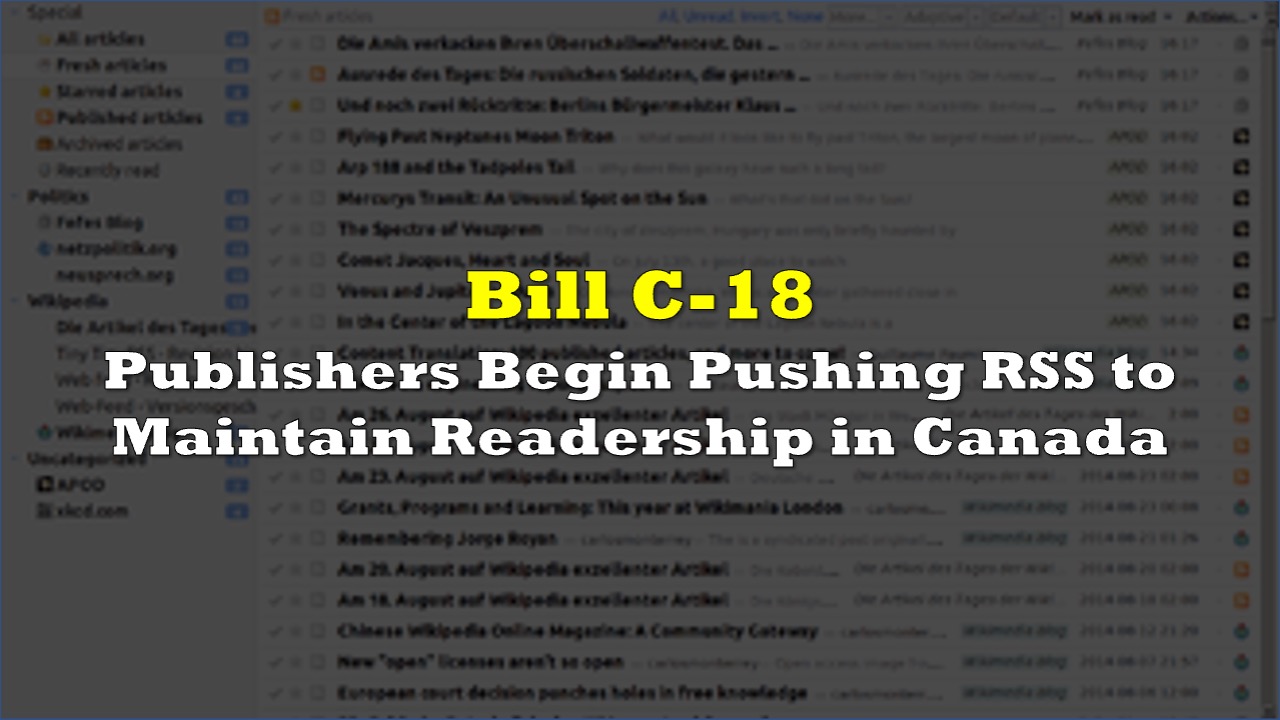In the midst of a standoff over Canada’s newly passed bill C-18 that mandates compensation for news outlets for links shared on social media platforms, tech giants Meta and Google have escalated their resistance by blocking (or threatening to block) news content in the country, leaving publishers concerned about maintaining their readership.
Really Simple Syndication (RSS) — remember the old internet? — is gaining renewed attention as publishers seek to circumvent the potential impact of the tech giants’ actions.
RSS feeds provide a direct channel for publishers to reach their audience without relying on intermediaries. It enables news outlets to deliver content to users in a curated manner, and allows readers to customize their news feeds from preferred sources. The technology ensures that readers receive headline summaries and can access full articles on the publishers’ websites, bypassing potential barriers imposed by tech giants.
Canadian publishers — like The Tyee, which recently published a long feature about RSS — are now encouraging readers to utilize RSS feeds to ensure they can access news content, even if Meta and Google stop sharing their content on their platforms.
RSS also offers a sort of antidote to the algorithms and endless scrolls of social media platforms — all they get is curated, manageable lists of news stories from their preferred sources. Similarly, readers can also subscribe to newsletters as a way to receive news directly from sources.
Information for this story was found via The Tyee, and the sources and companies mentioned. The author has no securities or affiliations related to the organizations discussed. Not a recommendation to buy or sell. Always do additional research and consult a professional before purchasing a security. The author holds no licenses.






